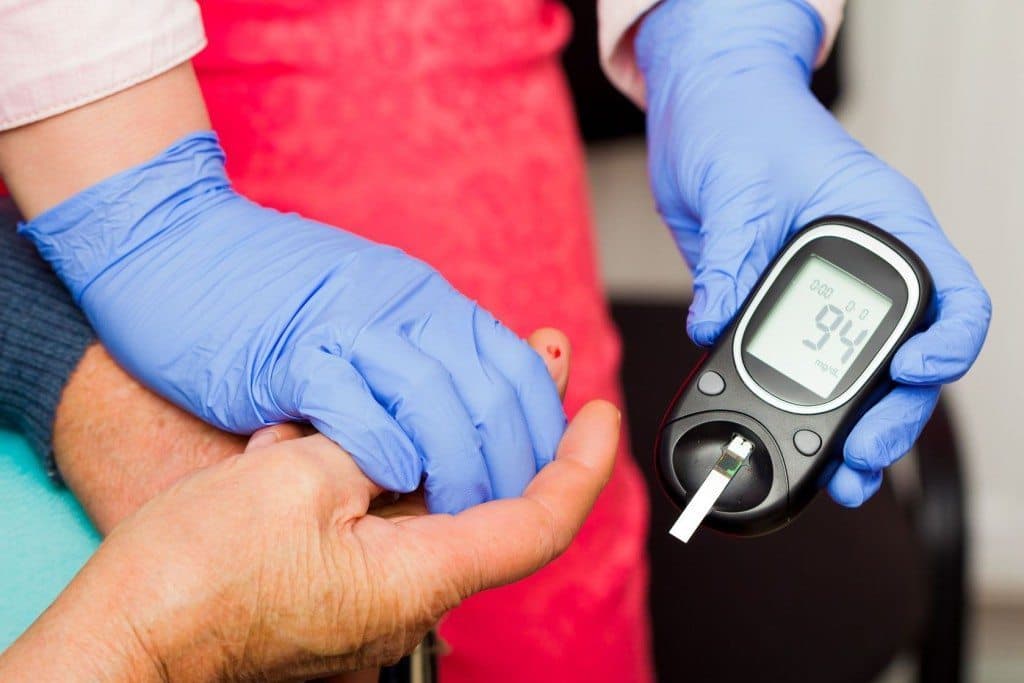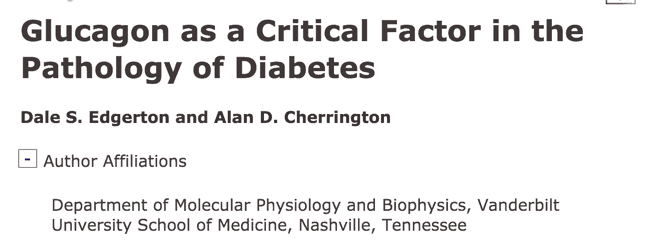
Is it possible that type 2 diabetes is not a disease of insulin at all?
Is it possible that doctors have been treating the wrong thing for the past 100 years?
It’s well-known that diabetes causes elevated blood sugar. Elevated blood sugar is used to diagnose diabetes. And I’m talking about type II diabetes throughout this newsletter.
However, the focus of diabetes treatment has often been insulin — is this focus right or wrong?
Levels of insulin are already very high in a diabetic body.
One of the symptoms of diabetes is that the diabetic has high insulin levels, but the cells are no longer responding to the insulin.
This is termed insulin resistance.
But what’s been forgotten is the other hormones, for instance, glucagon.
Glucagon is almost the opposite, the mirror image, of insulin. Glucagon causes the cells to let go of their sugar, and to break down. While insulin causes the cells to take up sugar, and build up themselves. Insulin is anabolic, and glucagon is catabolic.
In that sense, glucagon and cortisol are similar in some ways. When cortisol levels go up, the body begins breaking itself down. Cortisol releases free fatty acids and triggers the creation of glucose if the liver does not have enough.
Glucagon does similar things in the body as cortisol does when it comes to blood sugar. It causes the body to secrete free fatty acids, and to release sugar into the bloodstream.
It’s quite possible that glucagon is a key part of developing diabetes that has been completely ignored
 In this study, they destroyed the beta cells in rat’s pancreas, giving them the equivalent of type I diabetes. So the rats were not able to produce insulin.
In this study, they destroyed the beta cells in rat’s pancreas, giving them the equivalent of type I diabetes. So the rats were not able to produce insulin.
What makes this interesting, is that they also suppressed the secretion of glucagon in these rats. And when they gave these rats glucose, the rats metabolize glucose completely normally. They had no blood sugar problems.
The researchers found that
interfering with glucagon action (by decreasing its secretion or inhibiting its action) in the diabetic state is beneficial across species
By inhibiting the secretion of glucagon, the rats were no longer diabetic
You would think that this would be extensively studied, but it has not been. Researchers are just now studying the effects of glucagon and drugs to inhibit glucagon are being avidly studied by big Pharma. But there may be something you can do with this study yourself.
It’s well-known that glucagon shoots up after consuming a meal of protein. A meal of sugar increases insulin, but not glucagon.
It is possible that someone who is type II diabetic may benefit by suppressing glucagon through the frequent eating of low amounts of sugar.
It is possible that consuming fructose may be beneficial as fructose does not stimulate insulin production at all. But it does seem to inhibit glucagon.
Perhaps this is why fructose seems to help improve sugar metabolism in diabetics

Low-dose fructose improves the glycemic response to an oral glucose load in adults with type 2 diabetes, and this effect is not a result of stimulation of insulin secretion.
Probably because with a bit of fructose, the patients found that
Plasma glucagon concentrations declined
I’m not sure that if I had diabetes, I would be paying some attention to this and find some of this out, in consultation with my doctor of course. It’s fairly easy to take small amounts of fructose during the day and see what happens. There are also many other ways of combating diabetes symptoms such as niacinamide, thiamine, and glycine.
These studies show us that there is a great hope for fixing diabetes, perhaps in suppressing glucagon which may be very simple even without big Pharma drugs.
Citations
Glucagon as a Critical Factor in the Pathology of Diabetes
http://diabetes.diabetesjournals.org/content/60/2/377.full
Acute Fructose Administration Improves Oral Glucose Tolerance in Adults With Type 2 Diabetes
http://care.diabetesjournals.org/content/24/11/1882.long
Click for more information on Diabetes, for information on Diet & Exercise, or for more on Pathology of Diabetes.
